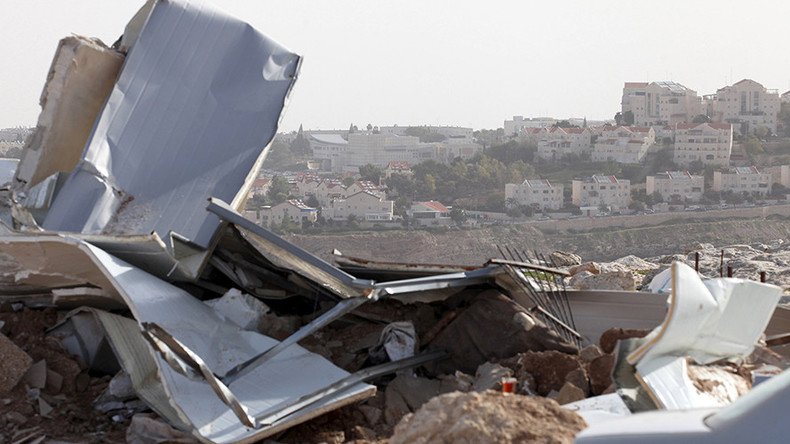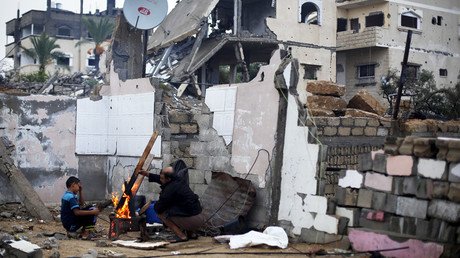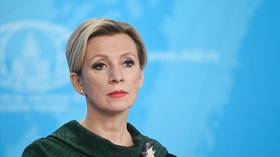US slams Netanyahu for comparing opposition to settlement policy with “ethnic cleansing”

Washington has berated Israeli Prime Minister Benjamin Netanyahu for using the term “ethnic cleansing” to describe the Palestinian Authority’s aspirations to create its own state, saying Netanyahu’s choice of words is “inappropriate and unhelpful.”
In a video message posted on Netanyahu’s FB account, the PM that he has “always been perplexed by the notion” that the “Jewish community in Judea and Samaria [the Israeli name for the West Bank] is an obstacle for peace.”
He went on to imply that requesting the dismantlement of illegal Israeli settlements on Palestine territory constitutes an “outrageous demand” equivalent to a call for “ethnic cleansing.”
“The Palestinian leadership actually demands a Palestinian state with one pre-condition: No Jews. There’s a phrase for that: It’s called ethnic cleansing,” the Israeli prime minister said, pointing out that Israel with its Arab community of two million people, on the contrary, provides an example of “openness and readiness for peace.”
Appealing to the intentional community, he urged all countries sharing Palestine’s view to cease “promoting this outrage.”
That call, however, did not find any support in Washington, which accused the Israeli PM of resorting to doublespeak.
“We obviously strongly disagree with the characterization that those who oppose settlement activity or view it as an obstacle to peace are somehow calling for ethnic cleansing of Jews from the West Bank. We believe that using that type of terminology is inappropriate and unhelpful,” US State Department spokeswoman Elizabeth Trudeau said in a briefing on Friday, stressing that the US will continue to adhere to the “strong consensus of the international community that ongoing settlement activity is an obstacle to peace.”
In turn, Trudeau accused Israel of endangering the peace process by proceeding with its rampant settlement construction in the West Bank and carrying out a “dramatic escalation” in the demolition of Palestinian homes there. Over 700 Palestinian structures have been leveled, leading to the eviction of over 1,000 people, she said, adding that such actions “raise real questions about Israel’s long-term intentions in the West Bank.”
A recent report prepared by the UN development body (UNCTAD) stated that the Israeli occupation of Gaza and the West Bank has had a damning effect on Palestine’s economic potential.
“The Palestinian economy would be at least twice as large without Israeli occupation,” says the report published on Tuesday by the United Nations Conference on Trade and Development (UNCTAD).
Widespread poverty and unemployment in Palestinian territory can be explained, among other reasons, by the “confiscation of Palestinian land, water and other natural resources.”
According to the report’s findings, the Israeli occupation inflicts huge economic losses in the West Bank, in particular. In area C, which accounts for more than 60 percent of its territory, it “costs the Palestinian economy the equivalent of 35 percent of GDP ($4.4 billion in 2015).”













